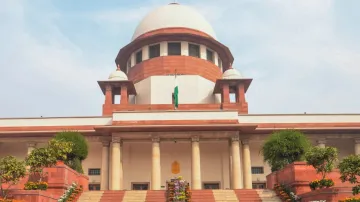The Supreme Court has dismissed a series of petitions seeking a review of its December 11, 2023, ruling that upheld the Central government's decision to abrogate Article 370, which granted special status to the erstwhile state of Jammu and Kashmir. A five-judge bench led by Chief Justice D Y Chandrachud reviewed the petitions in chambers, concluding that there was no apparent error on the record. "No case for review under Order XLVII Rule 1 of the Supreme Court Rules 2013," the bench stated, which included Justices Sanjiv Khanna, B R Gavai, Surya Kant, and retired Justice A S Bopanna.
Petitioners denied open court hearing
The court also denied requests from various petitioners to argue their case in person. The review petitions were filed by entities including the Awami National Conference, Jammu and Kashmir People's Democratic Party, CPI(M) leader Mohammed Yousuf Tarigami, the Jammu and Kashmir High Court Bar Association, and lawyer Muzaffar Iqbal Khan.
December verdict details
On December 11, the Supreme Court had ordered the holding of assembly elections in Jammu and Kashmir by the end of September 2024 and the restoration of statehood "at the earliest." The court maintained that Article 370 was a temporary provision that could be revoked by the President of India, given the absence of the state's Constituent Assembly since 1957.
Concurring judgments
The court's decision followed a 16-day hearing, resulting in three concurring judgments. Justices Sanjay Kishan Kaul (since retired) and Sanjiv Khanna authored separate but concurring opinions, supporting the abrogation of Article 370.
Upholding Union Territory status
The Supreme Court also upheld the validity of the Centre's decision to bifurcate the state into the Union Territories (UTs) of Ladakh and Jammu and Kashmir. The court clarified that J&K did not retain any "element of sovereignty" following its accession to India and the adoption of the Indian Constitution.
Statehood restoration assurance
Chief Justice Chandrachud referenced Solicitor General Tushar Mehta's assurance that J&K's statehood would be restored, excluding the UT of Ladakh. The reorganization into UTs was deemed valid under Article 3 of the Indian Constitution.
Legislative Assembly and public feedback
The court noted that the President had the authority to issue a notification declaring that Article 370(3) ceases to operate without the state's Constituent Assembly's recommendation. The continuous exercise of presidential power under Article 370(1) was seen as part of the integration process.
Petitioners' arguments
Petitioners argued that Article 370 could not be amended without the state's Constituent Assembly's concurrence, which ceased to exist in 1957. They claimed that the provision had become permanent. Justice (retd) Kaul emphasized that Article 370 was intended to gradually align J&K with other Indian states.
Call for truth-and-reconciliation commission
Justice (retd) Kaul also suggested establishing an "impartial truth-and-reconciliation commission" to investigate human rights violations by both state and non-state actors since at least 1980.
The Supreme Court's dismissal of the review petitions reaffirms its stance on the abrogation of Article 370, underscoring the constitutional process of integrating Jammu and Kashmir with India.
Also read | NIA files chargesheet against Khalistani terrorist Arshdeep Singh, his 3 aides
Latest India News
